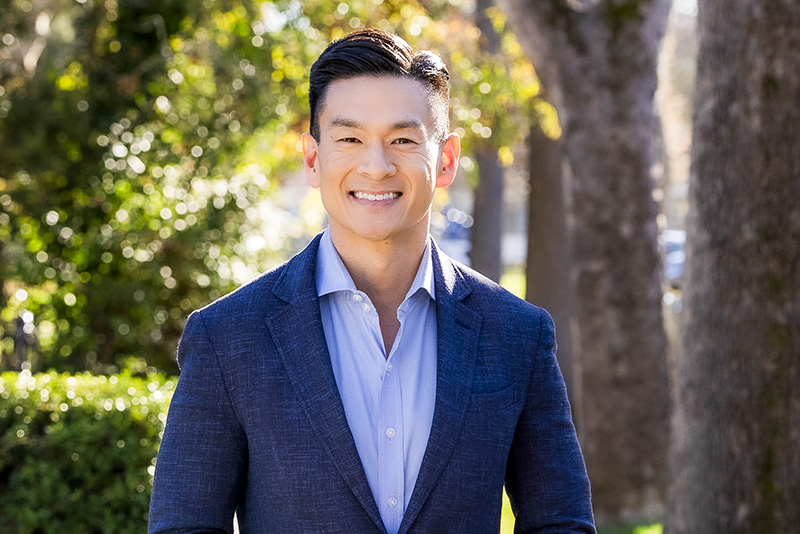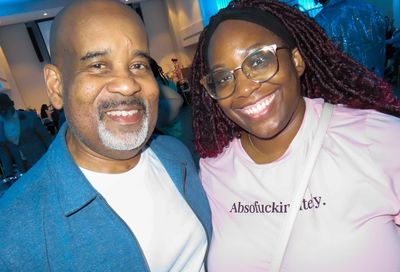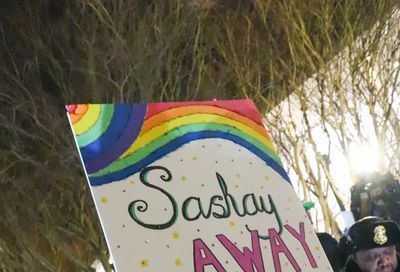Seeking to Serve: The Next Generation of LGBTQ Politicians
What is motivating more LGBTQ candidates to run -- and what's it going to take to get them elected?

During the 2016 presidential election, Joy Silver spent 100 days working in Nevada as a field organizer for Hillary Clinton. “The days were almost 18-hour days,” she says. “I was doing voter registration, making calls, knocking on doors. I was in the war, I felt, for the country’s values.”
While Clinton and down-ticket Democrats in Nevada were successful on Election Night, Silver returned to her home in Palm Springs, heartbroken over having “won the battle but lost the war.”
“I spent three days staring out the window,” she recalls, “and then I decided, ‘Okay, what’s next?'” Her first move was to begin seeking out other citizens who felt disheartened by the election of President Donald Trump.
Silver, a 62-year-old consultant on aging issues, soon became involved with California’s Courage Campaign, a state-based progressive advocacy organization, which asked its members to hold small meetings of “#CourageousResistance” in their living rooms. Silver hosted 17 people at her first meetup. Within six months, more than 1,700 had signed up.
Silver next worked with other grassroots organizations on establishing sanctuary cities, passing nondiscrimination ordinances, or lobbying elected officials to support progressive policies. In June, those around her started suggesting that she run for some type of office. She aimed high: her incumbent state senator, Jeff Stone, a Trump-style Republican who opposes many of progressive priorities.
Last week, Silver was one of many LGBTQ people who attended the Victory Institute’s International LGBTQ Leaders Conference in Washington, D.C. Held annually, it’s designed to encourage LGBTQ people to run for office and help push for pro-equality policies.
Unlike some, Silver came to the conference with prior campaign experience from her time as a field organizer, and it’s something that will come in handy as she seeks to increase her name recognition around the district and convince voters that she is the best candidate to replace Stone.
“I bring a lot of skills, not just hard skills of running budgets and operating large organizations, but the skill of bringing together people with diverse opinions,” Silver says. “I have a strong voice, and I can be the person who says what needs to be said and gets things done.”

Shay Franco-Clausen, a 42-year-old candidate for the San Jose City Council, has already been through Victory candidate training, a four-day intensive workshop offering realistic campaign simulations.
“Victory is very rigorous,” she says. “They train you so hard, and then teach you application right after. They give you a real look at what campaigning is like, and ask you, ‘Is this for you?’ You’ve got to know your marketing, your field operations, your demographic, your opponent’s weaknesses.”
Under the rules of California’s primary, Franco-Clausen must be one of the top two vote-getters on June 5 in order to earn a spot on the general election ballot. She aims to knock on 12,000 doors. She also plans to take advantage of free media and stay engaged with voters through social media.
Like Silver, many LGBTQ candidates found themselves drawn into politics after advocating for issues close to their heart. For Alex Valdez, a 36-year-old Denver resident who serves as the president of a residential solar company, the impetus was advocating for renewable energy at the state level.
“My first foray into politics was really focused around the fact that we needed a seat at the table for renewables,” says Valdez, “and on my desire to see accessibility expanded for renewable energy to people that are disabled, elderly and poor. As I’ve started to get out there in the community, I’ve learned so much more about what’s going on and that there are a lot of other issues that need an advocate.”

Running for a seat in the Colorado House of Representatives, Valdez says the best thing he can do as a candidate — and representative, should he be successful — is to listen.
“People who run for office a lot of times talk a lot, but I think the most important thing we can do is listen and hear the concerns of everybody that lives in the district. It’s my job to take their concerns to the statehouse and ensure that I am advocating for the things that matter to my community.”

For Alexandra Chandler, of Haverhill, Mass., the opportunity to become the country’s first openly transgender congressperson presented itself with the retirement of Democratic U.S. Rep. Niki Tsongas, leaving the seat for Massachusetts’ 3rd Congressional District open.
Chandler, who served as a Naval intelligence analyst for the past 13 years, recently moved back to her home state from Washington, D.C. with her wife and two children. She had thought of getting involved in politics at a local level by supporting other candidates, when, in a surprise development, Tsongas announced she would not run for re-election.
“I will say that I am the cliché of the woman candidate that has to be asked many times before they consider a run, because I did not automatically think of doing this,” she says. “I had people who came to me, saying, ‘You have things to offer, you should run.’
“Fundamentally, the real argument that resonated with me is this: I had spent my life working on some of the toughest challenges that this country faces, in areas where inaction, or just yelling at each other, is not an option.”
She points to the struggles that District residents have faced with unemployment and underemployment, the rising costs of healthcare, and opioid addiction as key issues that will inform her campaign — concerns she hears echoed at every local community meeting she attends.
Chandler recently received key endorsements that should provide her campaign a boost, including Tsongas’ former Washington office director and the Trans United Fund, a political action committee that has backed other successful transgender candidates for office, including Virginia Delegate-elect Danica Roem and Minneapolis City Council members Phillipe Cunningham and Andrea Jenkins. But Chandler is not just relying on endorsements to stand out from the crowded field of candidates seeking the seat.
“It’s going to come down to the organizing, the field game, knocking on doors,” she says. “Which fortunately, I love. Victory Fund training really emphasizes this. So I’m fortunate that I am well prepared to do it technically via training, but also well prepared, in that I just love talking to people and hearing their stories.”
Support Metro Weekly’s Journalism
These are challenging times for news organizations. And yet it’s crucial we stay active and provide vital resources and information to both our local readers and the world. So won’t you please take a moment and consider supporting Metro Weekly with a membership? For as little as $5 a month, you can help ensure Metro Weekly magazine and MetroWeekly.com remain free, viable resources as we provide the best, most diverse, culturally-resonant LGBTQ coverage in both the D.C. region and around the world. Memberships come with exclusive perks and discounts, your own personal digital delivery of each week’s magazine (and an archive), access to our Member's Lounge when it launches this fall, and exclusive members-only items like Metro Weekly Membership Mugs and Tote Bags! Check out all our membership levels here and please join us today!

























You must be logged in to post a comment.